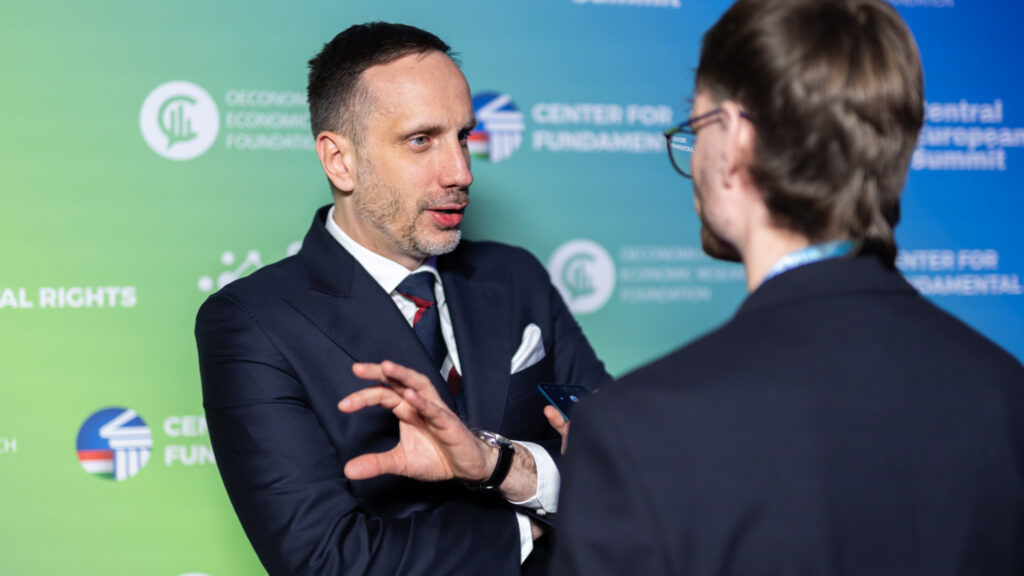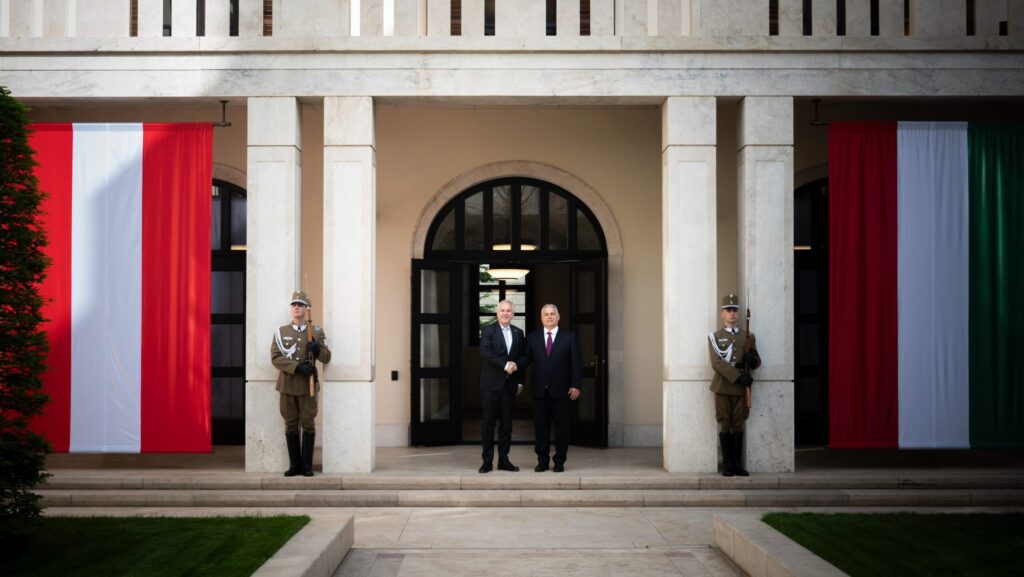Janusz Kowalski is a Member of the Sejm representing the Law and Justice (PiS) party in Poland. During PiS’s eight years in government, Kowalski held several positions, including Secretary of State at the Ministry of State Assets from 2019 to 2021, and later at the Ministry of Agriculture and Rural Development from 2022 to 2023. Last week, he visited Budapest to attend the Central European Summit, co-organized by the Oeconomus Economic Research Foundation and the Center for Fundamental Rights. He sat down with Hungarian Conservative for a brief interview, focusing on the upcoming presidential election in Poland.
***
Poland will go to the polls in May, and the upcoming presidential election will be crucial in several respects. How do you assess the chances of Law and Justice (PiS), and more broadly, the prospects of right-wing parties in securing the presidency?
I represent the Law and Justice party, and our candidate, Karol Nawrocki, is poised to win the election—I truly hope we succeed. Of course, we are mindful of the Romanian case, as it shows how certain forces, possibly linked to Brussels, might attempt to interfere with the democratic voice of the Polish nation. Similarly to the annulment of the results of the Romanian presidential election in December last year, they could try to prevent the victory of our candidate too.
Rafał Trzaskowski, the candidate of Civic Platform, Prime Minister Donald Tusk’s party, is extremely weak. He is a staunch Eurocrat. His agenda is left-wing, dominated by gender ideology, the Green Deal, and other policies that do not resonate with the Polish people. We sense that the momentum is on the side of the right, and I remain hopeful about our chances. However, we know that May will be a difficult month for us.
Besides Nawrocki, another right-wing candidate, Sławomir Mentzen, also appears to have a solid chance of reaching the second round of the presidential race. What are your expectations in such a scenario? Would PiS voters be likely to support Mentzen—and conversely, would Konfederacja sympathisers back Nawrocki?
Last year, I was the first Polish politician, especially from the Law and Justice circles, to say that the score of Sławomir Mentzen from Konfederacja would be crucial for our candidate to win. That is why I support a strong showing for Mentzen—he appeals to younger voters, those in their twenties and thirties. This presents a good opportunity to form a new coalition of Law and Justice and Konfederacja after the election.
What’s interesting is the contrast between Nawrocki and Sławomir Mentzen when it comes to taxation. Mentzen argues that taxes should be simple and low. Nawrocki, on the other hand, believes taxes should be simple, low, and pro-family. He is proposing a new tax model that favours families—something similar to what Hungary has implemented.
I’ve had the opportunity to meet your Minister for Family Policy, and I deeply respect the Hungarian government’s efforts to protect and support families. It’s a truly outstanding example for conservative movements across Europe. Nawrocki wants to take a similar approach by making the tax system work better for families.
I’m glad you brought up family policy. A few weeks ago, I spoke to former Deputy Minister for Family and Social Policy Barbara Socha, who said that everything the PiS government did for families in previous years has been reversed by the Tusk administration. What about other areas, like migration?
Law and Justice wants to protect our borders. Under Donald Tusk, many refugees—more precisely, illegal immigrants—have been brought in from Germany. That’s why I support initiatives against illegal migration. We even organized a major protest on the Polish–German border, with thousands participating to voice their opposition to this policy.
Unlike the Tusk government, we also stand against the Green Deal and other harmful agreements. Similar to the Hungarian government, we want to protect our farmers. I served as Deputy Minister of Agriculture, so I know how vital this issue is.
It’s also important to highlight that both Karol Nawrocki and Sławomir Mentzen are clear: no Polish soldier will be sent to fight in Ukraine. There is no agreement on that. In contrast, Civic Platform and Donald Tusk will follow whatever orders come from Brussels or Berlin.

Polish–Hungarian relations have faced difficult times in recent years. They were first slightly strained during the early phase of the war in Ukraine, and have further deteriorated under the current government. Do you see any chance this trend could be reversed?
I have always supported the Polish–Hungarian relationship. Even when we have different positions—such as on the war in Ukraine—I believe in sovereignty. Every country has its own interests: Poland has Polish interests, Hungary has Hungarian interests, Germany has German interests.
During these critical months and years since Russia’s second invasion of Ukraine, we maintained strong bilateral and diplomatic ties with Hungary. I have the highest regard for Ambassador Orsolya Zsuzsanna Kovács, who was a true friend of Polish–Hungarian cooperation.
‘Even when nations pursue different priorities, we must never forget our true friends’
Two years ago, I met Prime Minister Viktor Orbán in Budapest. That meeting left a lasting impression on me. Even when nations pursue different priorities, we must never forget our true friends.
Despite perceptions in Brussels, the rule of law in Poland has deteriorated since Tusk came to power, with a growing number of legal proceedings—widely described as politically motivated—being launched against opposition politicians. President Andrzej Duda remains the last major check on Tusk’s expanding power. What could be the potential consequences if the right were to lose this election?
We must win the election, and afterwards, we must restore the rule of law. I have great respect for our Constitution, our legal traditions, and our institutions. Sadly, Eurocrats and politicians like Donald Tusk do not respect the law—either in Europe or in Poland. They violate the legal order.
I believe the European Union must return to the principles of the rule of law. As for Ursula von der Leyen and others in Brussels—they must be held accountable. I believe in a conservative revolution within the European Union. I also believe in sovereign nations. That’s why I support the vision of leaders like Viktor Orbán and Donald Trump—leaders who truly believe in the concept of nation-states.
Read more of our interviews:








